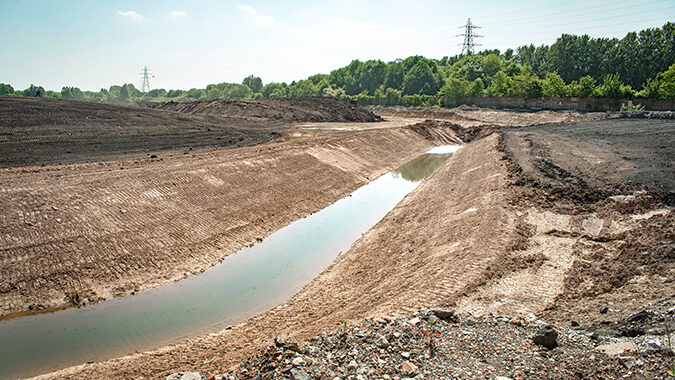Realtors, developers, brownfields community representatives and members of the public can review preliminary information and submit written feedback through an online form available on the NJEDA website. The NJEDA will also host two virtual public “listening sessions,” scheduled for 2 p.m. Wednesday Sept. 7, and 1 p.m. Thursday, Sept. 8.
Established by the New Jersey Economic Recovery Act of 2020 (ERA), the Brownfields Redevelopment Incentive Program covers specific costs associated with brownfield remediation and redevelopment, including the investigation and remediation of environmental contamination, as well as building and structural remediation activities.
The program, which provides $300 million in incentive funding over six years, focuses on brownfield redevelopment as an integral part of community development.
Awards of up to 50% of remediation costs are available for eligible brownfield sites, up to a maximum of $4 million. Brownfield sites in a Government Restricted Municipality or Qualified Incentive Tract may be eligible for up to 60% of rehabilitation costs, up to a maximum of $8 million. Awards will be scored on a competitive basis.
“The Brownfields Redevelopment Incentive is part of a suite of programs created under the ERA that sets a high bar for equitable and inclusive development,” said NJEDA CEO Tim Sullivan.
The NJEDA will partner with the Department of Environmental Protection (NJDEP) to create evaluation criteria for a competitive application process. To receive tax credits through the program, the developer must demonstrate that a financing gap exists. Parties that are in any way responsible or liable for the site contamination are not eligible for the program.
The BRI proposal is available for review here. The public can register here to attend the Sept. 7 virtual hearing and register here to participate at the Sept. 8 virtual hearing.
In addition to the Brownfields Redevelopment Incentive, the ERA created a suite of programs that includes tax credits to incentivize job creation, new construction, and historic property reinvestment; financial resources for small businesses; support for new supermarkets and healthy food retailers in food desert communities; new funding opportunities for early-stage companies in New Jersey; and support for the growing film and digital media industry. The NJEDA will continue to engage the public as new programs and rules are developed.
For more information and to provide written input on the design and implementation of Economic Recovery Act programs, visit njeda.com/economicrecoveryact.




